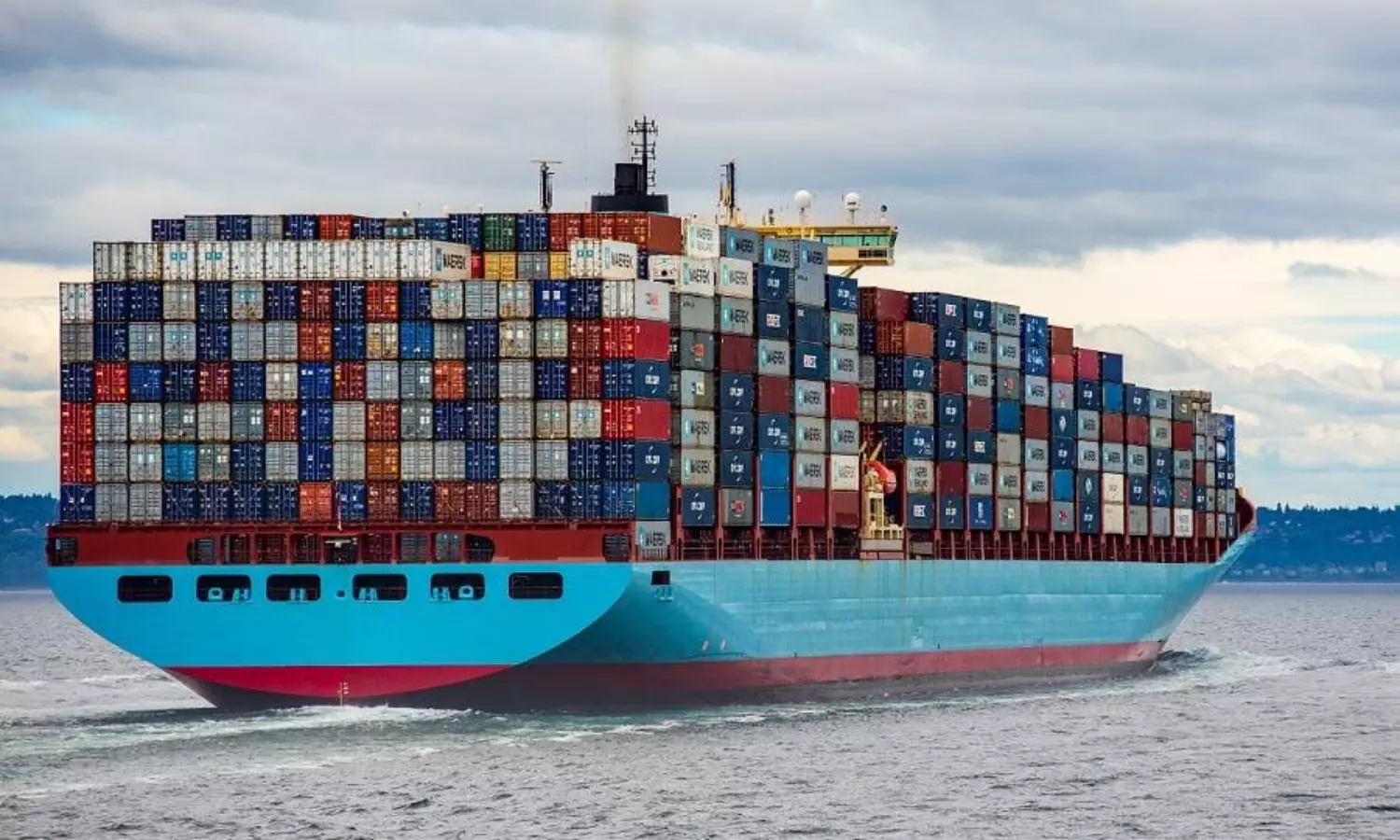Frontloading, macroeconomics to impact H22024 shipping: Xeneta
2024 has seen record-breaking numbers of new ships delivered but overcapacity previously expected has not materialised

Longer sailing distances increases TEU miles while some shippers respond to the current situation by frontloading importers. "Macroeconomics and shifting trade alliances between nations also comes into play," says Xeneta in its outlook for the second half of 2024.
2024 has seen record-breaking numbers of new ships delivered but the overcapacity previously expected has not materialised, the update added. "The spread between the short- and long-term market presents a big risk to shippers – and it may get worse before it gets better."
Union action is being seen in the U.S. and Europe, which is already having a hugely detrimental impact, the report added.
"There's an increased appetite from shippers to rethink how they agree terms to ship products around the world,” says Patrik Berglund, CEO & Co-Founder, Xeneta. “They want a better, smarter, friction-free, more data-driven way to solve how freight is currently bought and sold – and we're excited for what that future looks like."
Carriers were expecting to record massive financial losses in 202 but the skyrocketing spot market will see them deliver a full-year profit, which seemed improbable six months ago, adds Berglund.
"A notable number of shippers and freight forwarders are currently paying peak season surcharge (PSS) and emergency surcharges on top of their contracted rates in an attempt to secure shipments – with only a few still getting what was agreed."
In the first four months of 2024, each container shipped globally was being transported 9.3 percent further on average, the update added. "This generated a global increase of 18.3 percent in TEU*miles."
The Global Xeneta Shipping Index (XSI), which measures all valid long-term contracts in the market, stood at 147.8 points in June, which is 6.4 percent down from December 2023, the update added. "However, the spot market on major trades out of the Far East has increased by more than 300 percent in this period. This spread represents a critical risk for shippers, some of whom have not been able to ship containers on their long-term contracts, had cargo rolled or pushed onto the spot market.
"Experiences will vary - carriers are prioritising larger volume shippers with direct contracts. Freight forwarders and smaller shippers (especially those contracting with freight forwarders) are less of a priority for carriers and therefore more vulnerable."
Demand hits record high in May
Demand for ocean freight container shipping hit an all-time record in May with 15.9 million TEU shipped globally, beating the previous record of 15.7 million TEU in May 2021.
"While this figure demonstrates the huge volumes being transported on a global level, the increasing demand is not spread evenly across the world’s ocean supply chains. It is vital for importers and exporters to understand why there is such an increase in demand, on what trades it is found and the potential implications – both now and in the future," Xeneta says in its update on demand in ocean container shipping.
As many as 74 million TEU were shipped in the first five months of this year, which beats the previous record set in 2021 by 0.15 million TEU. "Volume shipped in the first five months of 2024 is also up by 5.2 million TEU compared to the same period in 2023. Demand across all global fronthaul trades in May set a new record, rising to 7.3 million TEU."
Increasing global volumes in 2024 are largely driven by record-breaking exports out of China. In May, China exported 6.2 million TEU, which is another all-time record (of which 853,000 TEU are intra-China demand), the update added.
"Record container shipping demand in 2024 cannot only be explained by underlying consumer demand. It is also a consequence of shippers bringing imports forward of the traditional peak season, whether due to nervousness over worsening market conditions or factors such as tariffs on China imports and threat of strike action at ports in the U.S. East and Gulf coasts. This frontloading has contributed to increasing demand so far in 2024 but there will be a flipside when businesses start drawing down on the stocks they have built up."
The next disruptions
With presidential elections coming up in November and Donald Trump already floating the idea of 60 percent tariffs on imports from China and 10 percent tariffs on imports from anywhere else, shippers may start to frontload imports of goods, which would have a knock on impact on rates and capacity on the U.S.-bound trades.
China and Taiwan, nearshoring and "who knows" have been cited as other disruptions to watch out for by Xeneta.


